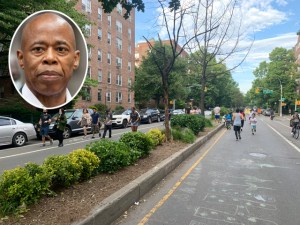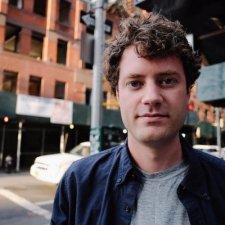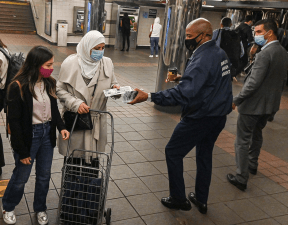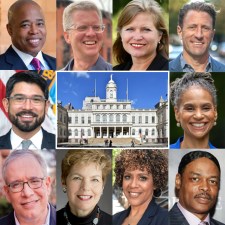Hey, Mayor Adams — Don’t Forget All These Great Ideas from the Campaign Trail
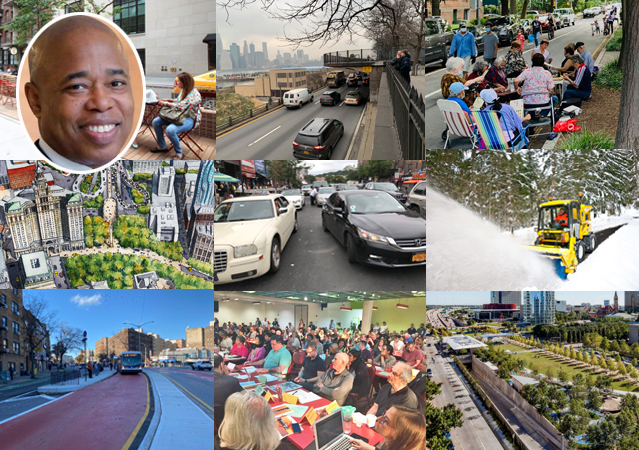
Eric Adams will be the next mayor of New York City — but that doesn’t mean he can’t steal some good ideas from the candidates he trounced, right?
Virtually all of the mayoral candidates (including the eventual winner) offered ideas to radically transform New York’s streets from unsafe car sewers into livable streets for people — the vast majority of whom do not have access to, or want access to, a car. But the media-led debate was dominated by one topic: crime. None of the best ideas for increasing bus speeds, decreasing road violence, encouraging cycling, and cracking down on entry-level corruption like placard abuse got discussed at all.
But that doesn’t mean presumptive Mayor Adams can’t embrace — “steal” is such an ugly word — all of the best ideas we heard on the campaign trail. Here’s a reminder of what they were:
Scott Stringer
The City Comptroller said he would expand off-peak transit so that subways and buses on 100 routes arrive within six minutes all day. Stringer said he would pay for it by shifting a greater portion of the $1.8 billion in gas taxes collected by the state towards transit. Currently, 63 percent of gas taxes goes into the state’s Highway and Bridge Trust Fund.
Stringer also proposed banning cars along the Brooklyn-Queens Expressway from under the Brooklyn Bridge to Hamilton Avenue so that it would become a truck-only route — which would then be decked with parks.
Carlos Menchaca
The Sunset Park Council Member planned to remove half of the city’s parking spots and replace them with bike networks. Tech entrepreneur Art Chang also focused on the excess and waste of parking during his bike ride with Streetsblog’s Dave Colon.
Art Chang
During that same “Dave Colon Challenge” ride, Chang called for city-overseen or city-run car-share service — like a Citi Bike, but for those rare opportunities when a car is simply the only vehicle for the job. “Maybe there’s a way to get people to trade in their car for a super-discounted membership on a municipal Zipcar,” he said.
Kathryn Garcia
The ex-Sanitation commissioner vowed to improve safety for cyclists by using cameras to penalize drivers who block bike lanes. She also said she would increase the use of cameras to enforce failure-to-yield violations.
Garcia also proposed expanding the Fair Fares program by reallocating ferry subsidies into the transit subsidy for low-income New Yorkers.
Garcia also called for the city to purchase narrow snow plows — called Multihogs — that would allow bike lanes to be cleared quickly after storms so that cyclists don’t have to wait until every car lane is cleared before they can get to work, too.
Dianne Morales
Morales promised to daylight all intersections and install Accessible Pedestrian Signals at every major intersection. APS are devices attached to signal poles to assist blind or low vision pedestrians crossing the street. Currently, the Department of Transportation tries to install about 150 APS devices per year.
Morales also favored city control of the subways and the buses because, as she put it, “state control has meant that the suburbs and commuter trains have been prioritized over the city.”
Maya Wiley
The former head of the Civilian Complaint Review Board said she would create an Office of Open Space Management (often referred to as the Office of Public Space Management) to better reallocate road space for pedestrians and cyclists, a plurality of which is allocated for the storage of cars that only add to congestion and don’t even move people. Wiley’s plan to create more space is an idea that the advocacy group City Rise has been demanding for more than a year.
Shaun Donovan
The former city Housing Commissioner said he would create a “true bus rapid transit” by repurposing road lanes or entire roadways from cars and giving them over to buses, often in lanes secured by concrete. A “true bus rapid transit” also includes a dedicated passenger waiting zone and all-door boarding like subway trains.
Andrew Yang
Yang said he would not let community boards sink important projects, though he would seek their advice on how to best tweak a given street-safety proposal: “I don’t think having community boards veto some of these plans would be the right approach for certain citywide goals,” he said. (Adams, who is also a cyclist, made similar comments when it came to community boards.)
Eric Adams
Since these are Adams’s own ideas, he should have no problem implementing them:
- He called for bike superhighways in the millions of square feet of public space that lie underneath the 700 miles of elevated bridges, highways, subway and rail lines.
- Adams also promised to subsidize Citi Bike so it can expand faster.
- Adams also promised to buy more electric buses by allocating capital money towards them.
- Adams also signed the petition calling for the city’s best open street — on 34th Avenue in Jackson Heights — to be turned into a linear park.
- He also supports Transportation Alternatives’ proposal to repurpose 25 percent of the roadbed away from cars and back towards people.
And, of course, not all the best ideas came from the candidates at the top of the ticket. We heard great ideas from a number of other office-seekers:
- City Council hopeful Julie Menin looked to expand green space on the Upper East Side by eliminating space from the FDR Drive.
- Billy Freeland, her competitor for the Upper East Side seat, one-upped her and said he wanted to eliminate the highway altogether.
- Another candidate in that race, Rebecca Lamorte, said she would make every subway station and method of public transportation fully accessible and ADA-compliant.
- Former City Hall official Lincoln Restler suggested eliminating the 60,000 placards given out to cops and city employees under the de Blasio administration. Restler’s proposal also called remaining placards to be strictly enforced by a new, non-NYPD unit; for the Department of Transportation to eliminate placard-parking zones around city offices, courthouses and the like; and for the city to reduce its fleet size by nearly 20 percent, which would take 5,000 vehicles off the road.
- Former teacher and union leader Bridget Rein proposed a car-free busway on Union Street from Grand Army Plaza to Columbia Street.
- Bronx Council candidate John Sanchez wanted to introduce legislation that would direct parking meter revenue to neighborhood improvement projects.
- Brooklyn candidate Scott Murphy offered New Yorkers a monthly payment for one year if they sold their cars.
